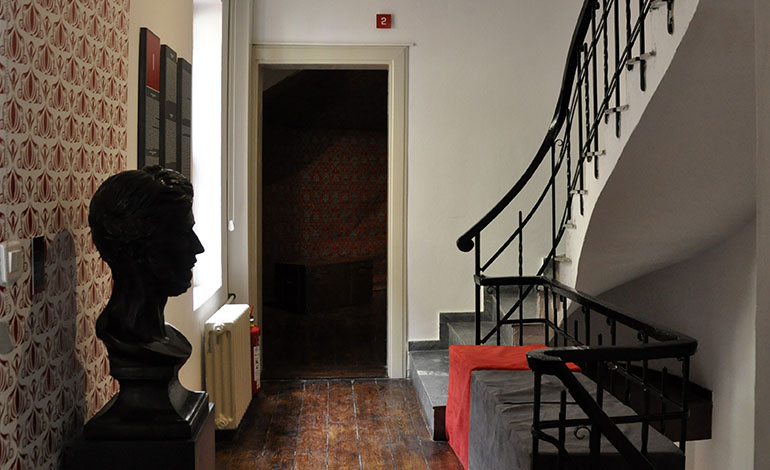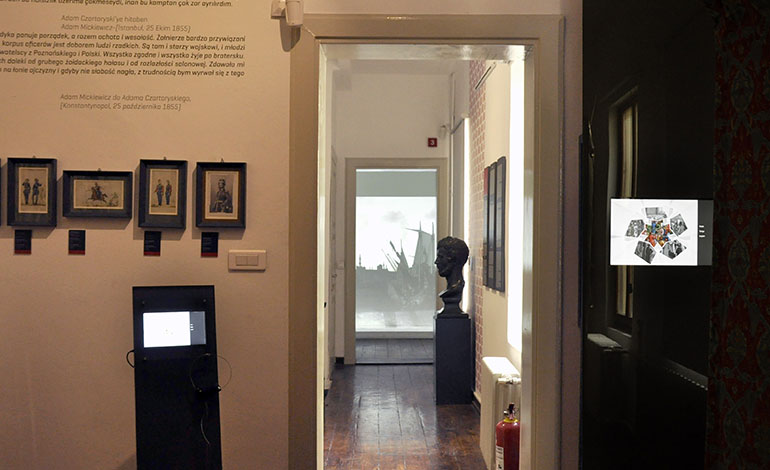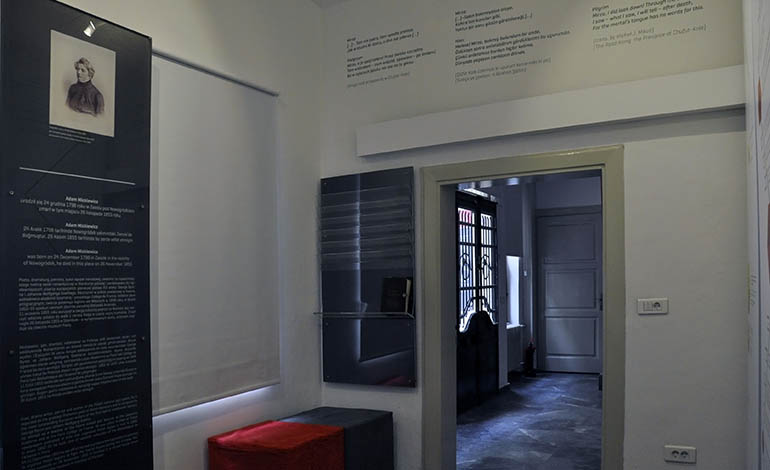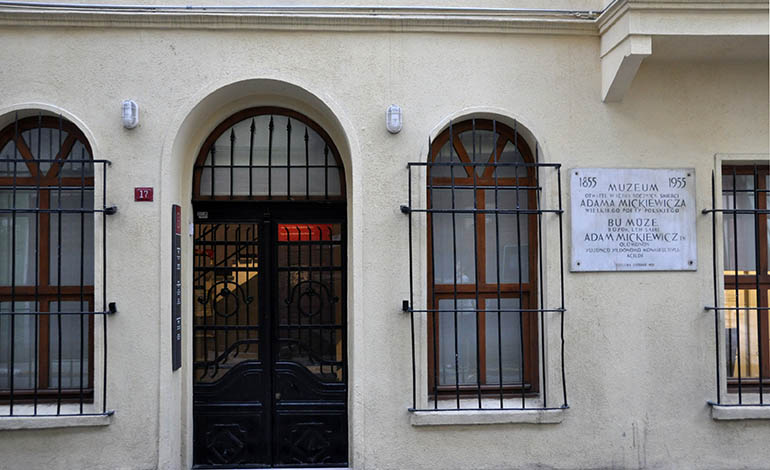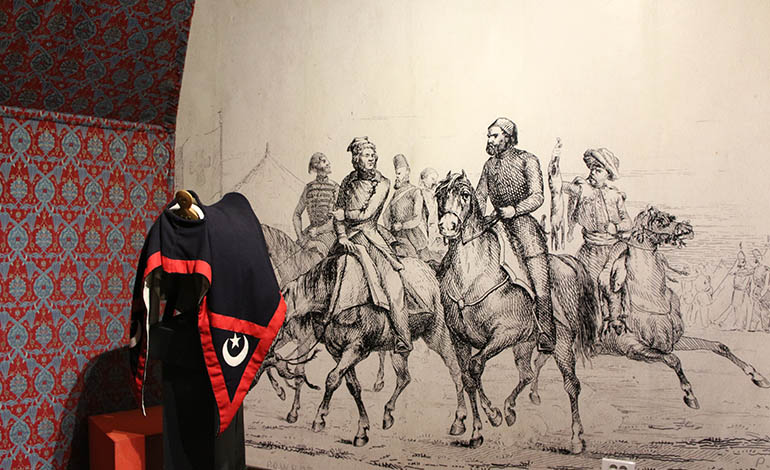Adam Mickiewicz was born on 24 December 1798 in Zaosie near Nowgrèdek and died in Istanbul on 26 November 1855. He was a poet, playwright, and patriot, and is best known for writing the Polish national epic poem. Mickiewicz is considered the greatest Romantic poet in Polish literature and is often compared to other prominent European writers of the first half of the nineteenth century, such as George Byron and Johann Wolfgang Goethe. He was a teacher at the Kovno school and a lecturer at the Lausanne Academy and the Paris Collège de France. Additionally, he served as the editor-in-chief of Polish newspapers published in exile and organized the Polish legion in Italy in 1848. From 1852 to 1855, he was responsible for the valuable collection of the Bibliothèque de l'Arsenal in Paris. In September 1855, he embarked on his final journey to the East with the intention of organizing Polish legions to fight against Tsarist Russia during the Crimean War. He passed away suddenly on 26 November 1855 in Istanbul, in a rented house which has since been turned into a museum in memory of the poet. In November 1855, Adam Mickiewicz, Armand Lévy, and Henryk Sluźalski rented a house from a certain Mrs Rudnicka at the junction of Yeni Şehir and Kalyoncu Kulluk. In March 1870, an enormous fire devoured almost all of the Pera district, including the building in which the Polish poet stayed during the last weeks of his life. In that year, Jόsef Ratyński purchased the plot from the municipality of Istanbul for 100 Turkish pounds and built an exact replica of the destroyed building. Today, the Adam Mickiewicz Museum is situated at the intersection of Tatlı Badem Street and Serdar Ömerpaşa Street. The description below was provided by one of the Polish visitors after the poet's passing: “I saw the large parlour where he resided, which had one quadrangle window. A vestibule led into the room. The furnishings consisted of a table, a few basic chairs, and a bed, which was even simpler, covered with a straw mattress and a Turkish rug, and located in the corner. The room was empty, dark, and damp, reminding me of the kind of accommodation one might find during autumn travels on Ukrainian trails. This was the accommodation that the poet had regarded as transitory before his planned trip to Bulgaria and Serbia. However, it was here that he died on November 26, 1855.”
ADAM MICKIEWICZ MUSEUM

